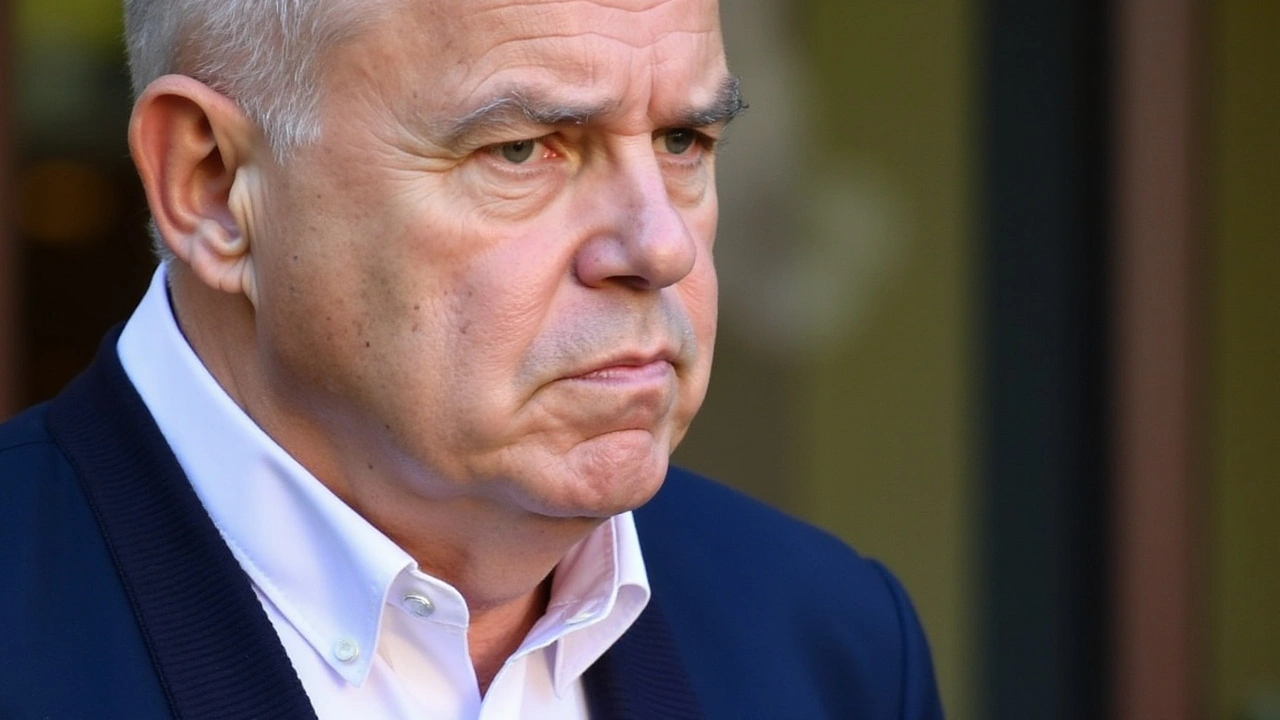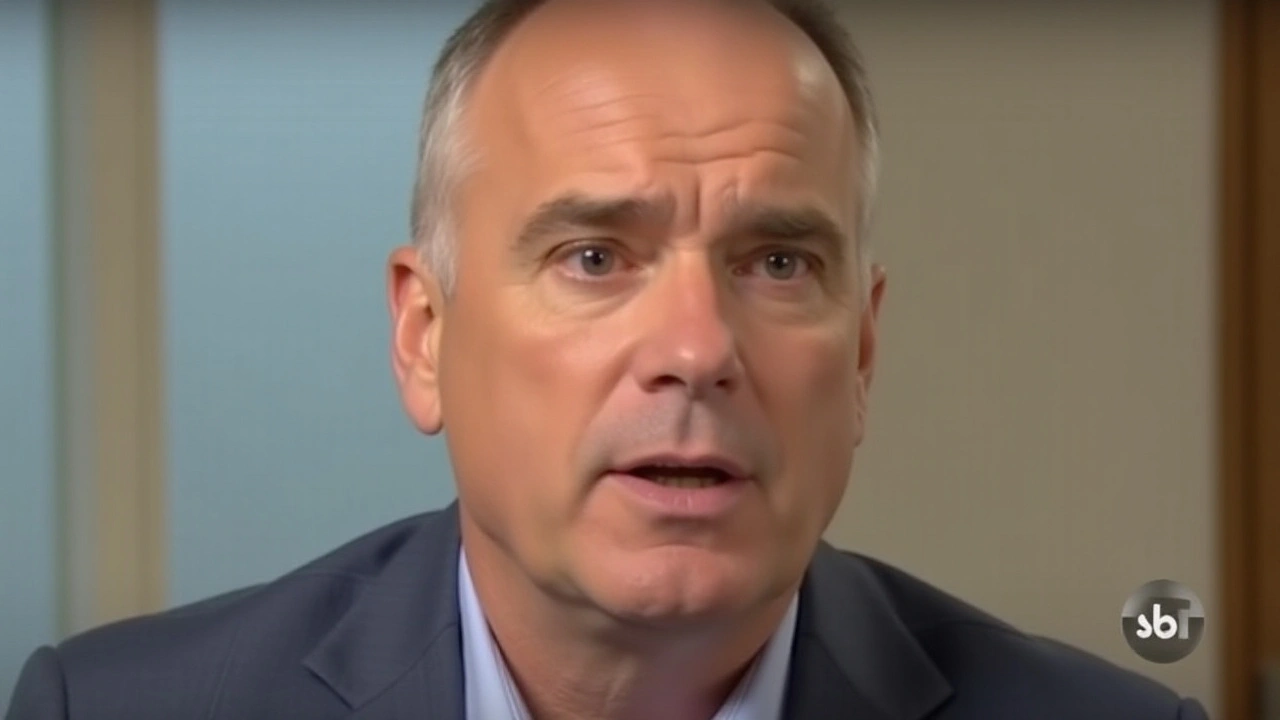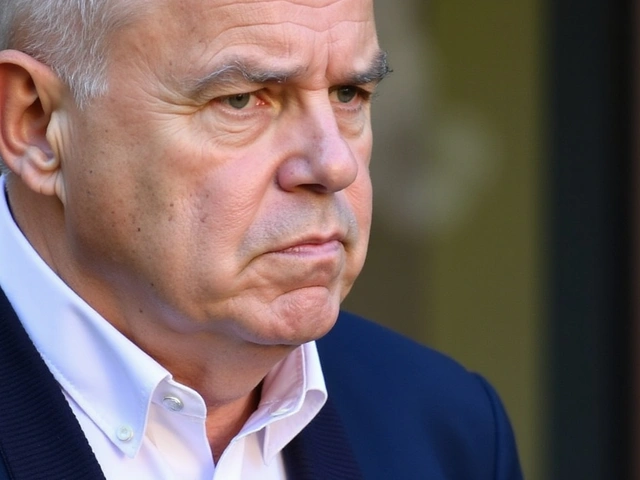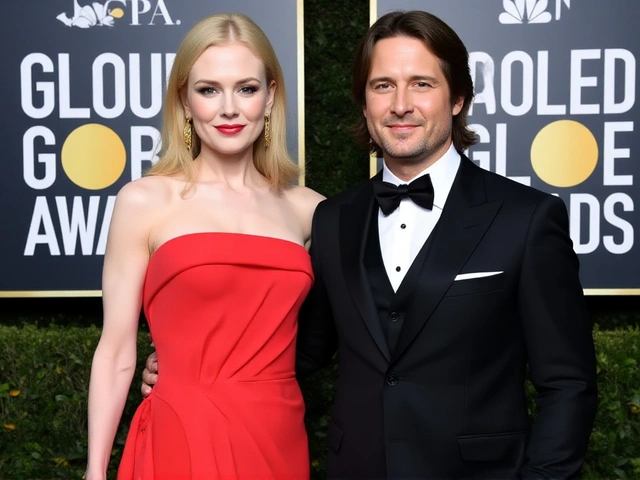
Huw Edwards' Sentencing and its Repercussions
In a dramatic twist of fate, former BBC presenter Huw Edwards finds himself at the center of a media storm. Recently sentenced to a six-month prison term, suspended for two years, Edwards now faces the fallout of a tarnished image and public scrutiny. His mugshot adorned the front page of Tuesday's Metro, signaling an end to a once-illustrious career and casting a shadow over his professional achievements.
Details surrounding the charges remain scarce, yet the sentencing underscores a significant breach of the law. What is evident, however, is the profound impact on Edwards' reputation. Colleagues and the public alike have voiced their shock and disappointment, varying from statements of pity to indignation. In the court of public opinion, Edwards' standing has plummeted, leaving his future uncertain.
Public Reaction and Media Coverage
The incident has sparked widespread debate, primarily due to Edwards' notoriety as a respected BBC figure. A figure often seen gracing our television screens for the nation's critical news moments now becomes a subject of unwelcome attention. This fall from grace has raised eyebrows and questions about the integrity of media personalities and the institutions they represent.
News outlets have provided wall-to-wall coverage of the sentencing, amplifying the case's significance. Social media platforms overflow with discussions, some sympathetic to Edwards’ plight, others harshly critical. Public reaction has varied, with some expressing regret for the former presenter's situation and others firmly asserting that justice must be served.
Impact on the BBC
The BBC, an institution synonymous with media impartiality and integrity, now faces scrutiny for its handling of the situation. Internal and external critiques suggest that the broadcaster's reputation may suffer lasting damage. Trust is a cornerstone of the BBC's relationship with its audience, and incidents like these threaten to erode that foundation.
Inside the BBC, employees grapple with the implications of Edwards' fall from grace. Morale has taken a hit, and the organization must now navigate the challenge of reaffirming its commitment to ethical journalism while addressing its audience's concerns. External critics place further pressure on the BBC to transparently communicate how it intends to prevent similar incidents in the future.

Legal Implications
With Edwards' sentencing handed down, legal analysts have begun dissecting the possible ramifications. While specific details of the charges remain under wraps, the punishment — a suspended prison term — suggests severe wrongdoing worthy of judicial action. Legal experts speculate that the nature of the crime could encompass a range of serious offenses, hinting at the gravity of the situation without full disclosure.
The suspended sentence leaves Edwards walking a tightrope; any further infractions could lead to an immediate enforcement of the prison term. This legal tightrope adds an intricate layer to the already complex public narrative surrounding Edwards, perpetuating interest in his next moves and choices.
Future Prospects for Edwards
As Huw Edwards steps away from the limelight, his future prospects remain hazy. Once a trusted news anchor, his credibility has taken a substantial hit, making a return to high-profile presenting work implausible, at least in the near term. Public trust, once breached, is notoriously difficult to rebuild, particularly in professions reliant on reputational integrity.
Speculation abounds regarding Edwards’ next steps. Some suggest a retreat from public life entirely, while others predict an attempt to rehabilitate his image through lower-profile work or a pivot to different creative or professional endeavors. Whichever path he chooses, it is undeniable that Edwards' journey from here on out will be arduously steep.
Broader Implications for Media Trust
The atmosphere of scrutiny surrounding Huw Edwards' case points to a broader crisis of confidence in media figures and institutions. In an age where the lines between public and private lives of media stars blur, this incident invites a critical reassessment of how much trust we place in our broadcasters and the channels they work for. Accountability and integrity are paramount, yet these scandals challenge the notion of a trustworthy media landscape.
The distrust exacerbated by such incidents holds implications far beyond a single individual's career. They question the very systems that allow such breaches to occur, calling for a reevaluation of policies, oversight mechanisms, and ethical standards within media institutions. For the BBC, as well as other major broadcasters, this serves as a wake-up call to renew their commitments to transparency and ethical conduct.
The coming months will be telling as audiences and analysts alike observe the fallout from this case. Both Huw Edwards and the BBC stand at a crossroads, facing heightened scrutiny and an imperative to rebuild trust. How they navigate this crisis will determine their legacies in the public eye and the future of media trustworthiness.






The adjudication of a high-profile broadcaster engenders a cascade of epistemic reverberations that permeate the fabric of public discourse. The suspended custodial sentence, while ostensibly merciful, constitutes a de facto indictment of systemic ethical laxity within the media establishment. Such a juridical outcome precipitates a paradigmatic shift in the perceived infallibility of news arbiters. The ontological integrity of journalistic praxis is thereby compromised, engendering a collective cognitive dissonance among the audience. Institutional credibility, once buttressed by the veneer of impartiality, now teeters on the brink of obsolescence. The ramifications extend beyond the individual, implicating the corporate governance structures that sanction editorial autonomy. Moreover, the specter of reputational attrition exerts a deleterious influence on stakeholder confidence. Stakeholders, ranging from advertisers to regulatory bodies, recalibrate their risk assessments in light of this jurisprudential development. The media's hegemonic position within the sociopolitical hierarchy is thus interrogated with unprecedented vigor. Compounding this phenomenon is the proliferation of derivative narratives across digital ecosystems, each amplifying the scandal through algorithmic echo chambers. The resultant information entropy destabilizes the conventional hierarchies of trust, fostering an environment ripe for opportunistic misinformation. In this context, the BBC's internal morale suffers a quantifiable diminution, as personnel grapple with the dissonance between institutional ideals and lived reality. The organization is compelled to embark upon a comprehensive audit of its ethical frameworks, lest further erosions of credibility ensue. Public sentiment, oscillating between outrage and pity, underscores the volatile nature of collective perception. Ultimately, the confluence of legal sanction and media scrutiny cultivates a crucible for transformative reform, provided that the institutional response is both transparent and resolute.
Nice recap of the facts but keep it simple so we all get it. The court gave him a suspended term and now his image takes a hit.
It’s heartbreaking to see someone who was once a trusted voice stumble like this, yet it also reminds us that no one is above accountability. While we can sympathize with the personal toll, the broader lesson about institutional vigilance cannot be ignored. Media figures must continuously earn the public’s trust, and when they falter, the fallout is inevitable.
The BBC will need to address this head‑on, reinforcing its editorial standards. A measured response will help restore confidence among its global audience.
Undeniably, the current predicament epitomises a lamentable breach of journalistic decorum; one must lament the erosion of a once‑staunch exemplar of credibility. The organization ought to embark upon a scrupulous internal review, lest further disillusionment pervade its viewership.
One might rhetorically inquire whether this incident merely illustrates an isolated lapse or serves as a portent of systemic infirmities within the corporation. Regardless, the sagacious course of action entails a forthright acknowledgment coupled with concrete remedial measures.
this is the biggest media scandal ever bro
Totally agree, that’s a massive issue. Hopefully they’ll fix it soon.
When the pillars of trust crumble, the echo reverberates through the corridors of society. Huw Edwards’ downfall is a stark reminder of our fragile reliance on media sanctity.
Absolutely! 🌟 The ripple effect is huge, and we all feel it, right?? 😢💔 Let’s hope this sparks a necessary change, for everyone’s sake! 🙏✨
Ah, the melodrama of a once‑revered anchor now reduced to tabloid fodder – what a spectacular turn of events. One can almost hear the sarcastic applause echoing across the newsrooms. Yet, beneath the spectacle lies a sobering reality: trust is not a commodity to be bartered lightly. Perhaps this will finally earn the BBC a genuine introspection, though I remain skeptically amused.